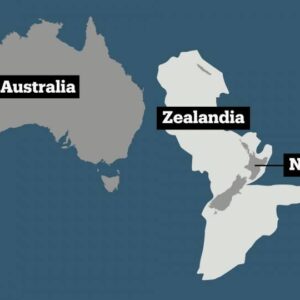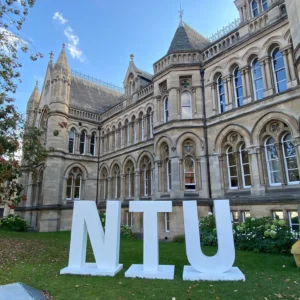Ever dreamed of earning a world‑class degree in Europe—without paying tuition or jumping through IELTS hoops? You’re in luck. Several European countries not only waive tuition fees for international students but also relax strict English test requirements. Here’s your step‑by‑step guide to studying abroad with no IELTS, no tuition, no catch.
Free Tuition Europe: Top Picks
Europe’s public universities are largely government‑funded, which translates into minimal or zero tuition fees for international students. Below are the flagship destinations where you can study for free:
Germany
- Tuition Fee: €0 per semester at most public universities
- Eligibility: All nationalities; applies to bachelor’s and consecutive master’s programmes
- Language Requirement: No IELTS if you studied in English; some courses require German proficiency
- Why Germany?
- Renowned engineering, natural sciences, humanities programmes
- Vibrant student life in cities like Berlin, Munich, and Hamburg
- Post‑study work permit up to 18 months
Germany abolished under‑ and postgraduate tuition fees in 2014. You only cover a small administrative semester fee (~€150) which often includes public transport passes (Masters Portal).
Norway
- Tuition Fee: €0 at public universities for all students
- Eligibility: All nationalities
- Language Requirement: IELTS not mandatory for some English‑taught programmes; check university rules
- Why Norway?
- Strong focus on research, especially in Arctic studies and energy
- English widely spoken; many programmes in English
- Generous welfare benefits, albeit higher living costs
Norwegian public universities abolished fees for non‑EEA students only in 2023; before that, fees applied. Now, you study tuition‑free—just budget for living expenses (~€950–1,250/month) (Global Admissions).
Austria
- Tuition Fee: €363.36/semester for non‑EU/EEA; free for EU/EEA students within normal study duration
- Eligibility: All nationalities (fee applies if you exceed minimum study time)
- Language Requirement: IELTS optional if you present a Medium of Instruction (MOI) certificate
- Why Austria?
- Central European hub with affordable living costs
- Strong hospitality, arts, and technical programmes
- Close proximity to Germany, Switzerland, Czech Republic
Austria charges a nominal tuition to non‑EU students, but offers OeAD grants and Erasmus+ slots to reduce costs further (Research.com).
Finland
- Tuition Fee: Varies €0–€15,000/year for non‑EU/EEA; scholarships and waivers widely available
- Eligibility: All nationalities
- Language Requirement: No IELTS if awarded tuition waiver; alternative proficiency proofs accepted
- Why Finland?
- Innovative teaching methods and high global rankings
- Abundant scholarships from universities and government
- English‑taught programmes are abundant
Finnish institutions offer tuition-waiver scholarships covering 50–100% of fees for excellent candidates, negating the need for IELTS if scholarship rules allow (Study in Finland, University of Helsinki).
Czech Republic
- Tuition Fee: €0 for programmes taught in Czech; low fees (~€3,000/year) for English programmes
- Eligibility: All nationalities
- Language Requirement: No IELTS for Czech‑taught; MOI or alternative tests for English courses
- Why Czech Republic?
- Historic campuses in Prague, Brno, Olomouc
- Low cost of living (~€600–800/month)
- Strong engineering, medicine, and humanities faculties
State universities waive tuition for Czech‑taught degrees. For English tracks, look for MOI exemptions or PTE/Duolingo alternatives (Wikipedia).
Study in Europe Without IELTS: Your Options
If IELTS is a barrier, these alternatives and exemptions can help you bypass it:
- Medium of Instruction (MOI) Certificates:
Many universities accept a signed letter from your previous institution stating that English was the language of instruction (Leverage Edu). - Alternative Tests:
- TOEFL iBT (min. 70–80)
- PTE Academic (min. 59)
- Duolingo English Test (min. 90)
- English‑Taught High School Diploma:
Some countries (e.g., Germany, Norway) waive IELTS if your secondary education was in English. - University Scholarships:
Scholarship winners often get automatic IELTS waivers—especially in Finland, Sweden, and Austria (Scholarships365 Network).
Scholarships EU: How to Secure Funding
Even when tuition is low or free, living expenses can stretch your budget. Here’s how to land scholarships:
- University‑Specific Scholarships
- Germany (DAAD): Offers monthly stipends (~€850) for graduates, PhD candidates, and researchers.
- Finland (University of Helsinki): Waives 50–100% of tuition fees based on merit (University of Helsinki).
- Austria (OeAD): Grants and monthly allowances for EU/EEA and non‑EU students.
- EU‑Funded Programmes
- Erasmus+ Grants: Cover travel and living costs for exchange students (~€300–500/month).
- Government Scholarships
- Finnish Government Scholarship: For students from developing countries, covering tuition, living, travel, and insurance (Scholarships365 Network).
- Norwegian Quota Scheme: (discontinued in 2016) replaced by other scholarship models, but check individual universities’ quotas.
- External Foundations
- Konrad‑Adenauer‑Stiftung, Heinrich Böll, Friedrich Ebert in Germany;
- Fulbright, Rhodes, Gates Cambridge for specific disciplines and countries.
Tuition‑Free Universities: Where to Apply (at a Glance)
| Country | Tuition Fee | IELTS Requirement | Key Scholarships | Living Cost (€/month) |
|---|---|---|---|---|
| Germany | €0 (public); semester fee ~€150 | MOI or German test; English prerequisite | DAAD, Erasmus+ | 800–1,000 |
| Norway | €0 | IELTS optional; check programme | University quotas, Erasmus+ | 950–1,250 |
| Austria | €363.36/semester (non‑EU); free for EU | MOI accepted; German test for DE tracks | OeAD, Erasmus+ | 850–1,100 |
| Finland | €5,000–15,000/year (non‑EU); scholarships | IELTS waived for scholarship holders | University waivers, Government Scholarship | 700–900 |
| Czech Republic | €0 (Czech‑taught); ~€3,000 for English | MOI or PTE/Duolingo | Erasmus+, university stipends | 600–800 |
Best Countries to Study in Europe
While tuition costs matter, consider these factors too:
- Language of Instruction:
- Germany, Norway, Finland: Many English‑taught master’s programmes.
- Czech: Strong local‑language tracks; fewer English options.
- Living Expenses:
- Czech Republic, Finland: Lower cost of living.
- Norway: High living costs but higher purchasing power.
- Post‑Study Work Rights:
- Germany: 18‑month job seeker visa.
- Finland: 1‑year post‑study permit.
- Quality of Life & Safety:
- Nordic countries consistently top global safety and happiness indices.
International Scholarships Europe: A Complete Guide
1. Research Early
- Start 12–18 months before enrolment.
- Mark application and scholarship deadlines.
2. Gather Strong Documents
- Statement of Purpose (150–300 words)
- Academic transcripts, CV, recommendation letters
- MOI certificate (if applicable)
- Language test scores or exemption proof
3. Apply Strategically
- Target programmes with rolling admissions or multiple intakes.
- Leverage early‑bird scholarships (often due December–January).
4. Ace Your Interviews
- Prepare to discuss your research interests, career goals, and why Europe.
5. Secure Accommodation
- University dorms often open applications after admission.
- Private rentals in student‑friendly neighbourhoods (Beware scams).
6. Plan Finances
- Estimate total budget: tuition (if any), living, visa, insurance.
- Use frozen account, sponsorship letter, or scholarship as proof.
Step‑by‑Step Application Process
- Choose Your Country & University
- Check programme language, tuition policy, living costs.
- Check Eligibility
- MOI, alternative tests, GPA requirements.
- Prepare Documentation
- Transcripts, SOP, CV, references, test scores.
- Submit Application
- Use country’s central portal (e.g., Uni‑Assist for Germany) or university portal.
- Apply for Scholarships
- Submit parallel scholarship application per institution guidelines.
- Receive Offer & Accept
- Pay any nominal fees, confirm attendance.
- Apply for Visa
- Provide admission letter, proof of funds, health insurance.
- Arrange Travel & Accommodation
- Book flights, reserve dorm or private flat.
- Orientation & Enrollment
- Attend welcome week, register courses, get student ID.
Frequently Asked Questions
Q: Can I study in Europe entirely without showing IELTS?
A: Yes—if you secure a scholarship that waives language tests or prove prior education in English (MOI) (Leverage Edu).
Q: Are there truly no hidden fees?
A: Public universities charge only minor semester fees. Check each programme’s website to confirm any administrative costs.
Q: How much should I budget for living expenses?
A: Range from €600/month (Czech Republic) to €1,250/month (Norway). Include rent, food, transport, insurance.
Q: Can I work part‑time while studying?
A: Yes; EU/EEA students face no restrictions. Non‑EU students usually can work 20 hours/week.
Q: What about health insurance?
A: Mandatory in most countries. Cost: €50–100/month. Some semester fees include public health coverage.
Q: How do I find accommodation?
A: University dorm applications open after admission. Also use student housing portals (e.g., WG‑Gesucht, HousingAnywhere).
Ready to start your journey? Research deadlines now, gather your documents, and apply. Europe’s tuition‑free, IELTS‑flexible opportunities await—no catch, just world‑class education!
References have been embedded throughout to guide you directly to official sources and reliable scholarship information.





